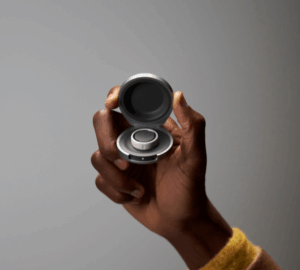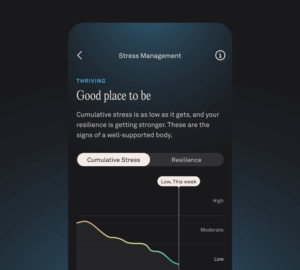A new initiative across academia, research organizations, medical providers, and the wearable industry aims to help prevent relapse and reduce deaths from opioid use disorder (OUD) using wearable technology.
Today, the Digital Medicine Society (DiMe) announced a groundbreaking collaboration between Oura, Duke University, Google Fitbit, UNC-Chapel Hill, and other leading organizations to explore how physiological and behavioral data from wearable devices can help identify early signs of opioid relapse.
This research marks a major step forward in how technology can be used to support recovery, reduce overdose deaths, and reimagine care for one of today’s most urgent public health challenges.
Why It Matters
Roughly 5.7 million people in the U.S. currently live with opioid use disorder. Of those, an estimated 81,000 die each year from an overdose. One of the most dangerous times for someone in recovery is during relapse—yet today’s healthcare system offers few tools to detect the warning signs in real time.
The new initiative is looking to change that. Using continuous health monitoring from wearables like Oura Ring, researchers will aim to identify patterns that may indicate elevated risk for relapse—such as changes in heart rate, insomnia, physical inactivity, and physiological stress. Smartphones will also help track mood and mental health markers like social isolation, anxiety, and depression.
By combining physiological and behavioral signals with AI-powered algorithms, this research aims to create an early detection tool that empowers individuals to take proactive steps in their recovery and alerts care teams when intervention may be needed most.
“OUD is a complex challenge, and complex challenges require innovative collaboration and solutions,” said Candice Taguibo, Associate Program Director at DiMe.
Oura’s Role in the Study
Oura will contribute to the study by providing continuous health data that can be used to better understand relapse risk in daily life. As Shyamal Patel, Senior Vice President of Science at Oura, explains:
“We’re proud to support this study by providing continuous health monitoring and personalized, data-driven insights. This can empower individuals to take proactive steps in their recovery, potentially reducing the burden on our overstretched public health systems and offering a crucial tool in the fight against the opioid epidemic.”
What’s Next
Over the next five months, researchers at Duke University’s BIG IDEAs Lab will lead a pilot study with individuals in recovery to gather real-world data and train the algorithm that could power future relapse prevention tools. The project will explore not just scientific rigor, but real-life feasibility—ensuring that the resulting technology is effective, inclusive, and designed with the lived experiences of those with OUD in mind.
True progress requires input from all angles. That’s why this project brings together academics, care providers, technology leaders, and most importantly, individuals with lived experience of OUD. The goal: to build something that works in the real world to help real people.
To learn more, please visit the project webpage.
RELATED: ŌURA Launches First-of-its-kind Pregnancy Study With Scripps











